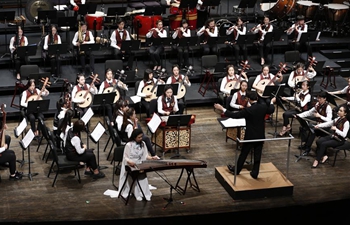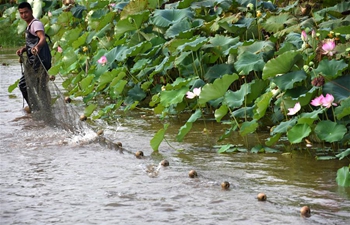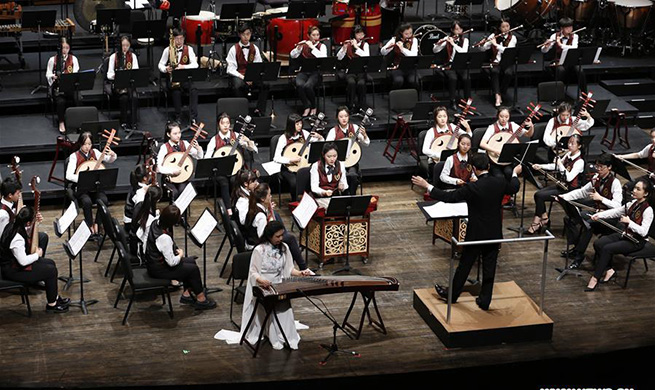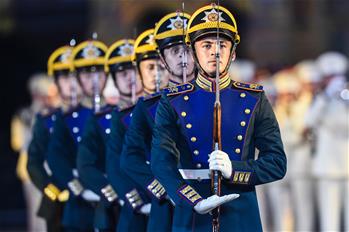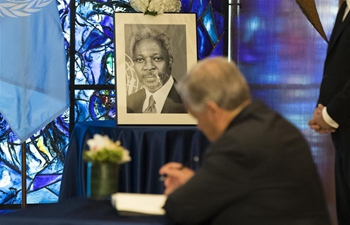HAVANA, Aug. 24 (Xinhua) -- Jorge Antonio Pomar, a 26-year-old Cuban consultant on culinary could not wait to subscribe to the mobile internet service to contact his overseas family after two trial runs launched this month.
Mobile online browsing became the talk of the town this month after state-run telecom firm ETECSA offered its five million customers temporary free access as technicians tried to detect kinks in the system.
Residents are discussing the impact that mobile access to the internet will have on their lives.
"Everything worked very well, hopefully it will always work that way. I have used 3G in other parts of the world and here it worked perfectly," said Pomar, as he recalled the glee at being able to video-talk with his daughter living abroad for 45 minutes smoothly from the comfort of his own home.
Previously, like Pomar, most Cubans with no internet connection at home had to rely on the approximately 1,650 public internet access sites, such as cyber cafes, or the 725 Wi-Fi hotspots at parks, squares, hotels and other locations.
"It is an advantage to have internet on our mobile phones and hopefully ETECSA rolls out the full service soon," he said.
More than 800,000 cellphone users took advantage of the initial trial to go online, ETECSA executives later told the press, adding the tests were served to identify defects in the network and "gaps" in the knowledge of users as to how to connect via their mobile devices.
The second trial, carried out Wednesday, overloaded the network and led customers complaining about call interruptions and unstable connections.
Orlando Gonzalez, a 31-year-old architect who earns money from renting out an apartment, sees the service as an opportunity to make his small business more efficient.
"I use the internet almost every day because I rent out an apartment and have to check a website (like Airbnb) a lot to see if users have written to me. I go back and forth every day between my house and the Wi-Fi zone. If I had a connection on my cellphone everything would be easier," Gonzalez said.
Cubans are used to paying a hefty sum for their access to the internet because of the outdated infrastructure, thus few could afford it.
The government has made various adjustments such as lowering the wifi connection price to about one dollar per hour. However, it is still far from affordable given the average monthly salary of 30 U.S. dollars in Havana.
ETECSA hasn't said when the service will be officially launched or how much it will cost. A similar service offered to foreign companies, diplomats and journalists charges 40 U.S. dollars a month for four gigabytes of data.
"We want to be at the same level as other users around the world who have internet access on their phones," said Gonzalez, expressing his hope that the new service will work smoothly with reasonable prices.

